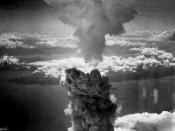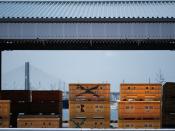China and Japan both had isolation policies. These policies sheltered them from the rest of the world. The effects from the policies were good and bad.
China's isolation began when demand for Chinese good increased. Many Europeans who traded goods also brought European culture and religion. Most Chinese opposed the religion. Soon there came restrictions to Chinese trade. You had to pay diplomats and perform the "kowtow" ritual. Many countries refused to do this, so it caused China's foreign trade become smaller.
In the beginning Japan welcomed newcomers, traders, and missionaries, who introduced fascinating new technologies and ideas. Because of aggressiveness Europeans had worn out their welcome. Christian missionaries began arriving in Japan. They became skeptical and put down traditional Japanese beliefs. Afterward, 30,000 shook the Tokugawa regime. Most of the rebels were Christian, shoguns persecuted Christians. This was the first step to control foreign trades.
Japan leaders issued a "closed country policy." This closed the entire island except the Nagasaki port.
By isolating their countries, China and Japan, and effects of good and bad effects. China had benefits of keeping their county behaved and controlled. Their disadvantage was that now their country is overpopulated. By not letting anyone out of the county, the population increased rapidly. Japan's advantages were that, for start, Nagasaki had a monopoly on foreign trade. This became very profitable. For second, Japan remained free from European colonization. China's and Japan's isolation could have been a good or bad thing it just depend on what perspective you choose.


